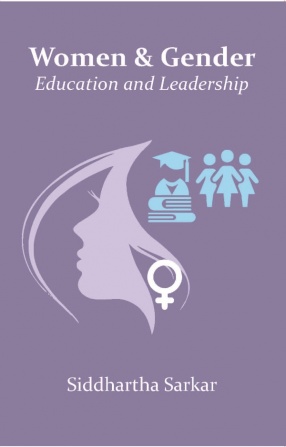Women & Gender: Education And Leadership
Basic education can also help women access their social and legal rights, and enable them to participate in management. However, having women in leadership and decisionmaking roles does not automatically translate to real authority, influence or systemic change. Fur ther education and professional training are typically required for women to be considered credible, influential, highlevel leaders and decision-makers. The research focusing on the debate between male and female effectiveness should be redirected since it seems quite clear that questions regarding leader effectiveness and leader emergence are better linked to the individual rather than to an individual's sex or even gender role.
Contents: Preface. 1. The Status of Women/E.N. Samwinga-Imasiku and S. Sarkar. 2. Measuring Women Empowerment/M.S. Gupta. 3. Women and Education/R. Rena. 4. Women in Employment and Politics/L.B. Dzimbiri and M. Pendame. 5. Gender Discrimination in Education/I.K. Acheampong. 6. Women as Political Leaders/F.L. Adamu and J.V. Mensah. 7. Technology and Women Empowerment/K. Muraleedharan. 8. Gender in Education Management/L.B. Dzimbiri. 9. Travel Program and Women Leadership/P. Hernandez. 10. Women Voice for Educational Reforms/M. Asmah. 11. Gender and Natural Resource Management/I. Were and S. Sarkar. 12. Women Leadership/N. Johnson and D. Birundha. 13. Gender Discrimination in Technology/J.V. Mensah and K.B. Antwi. 14. Women in Self-help Group/J. Kar. Index.
Get it now and save 10%
BECOME A MEMBER











Bibliographic information